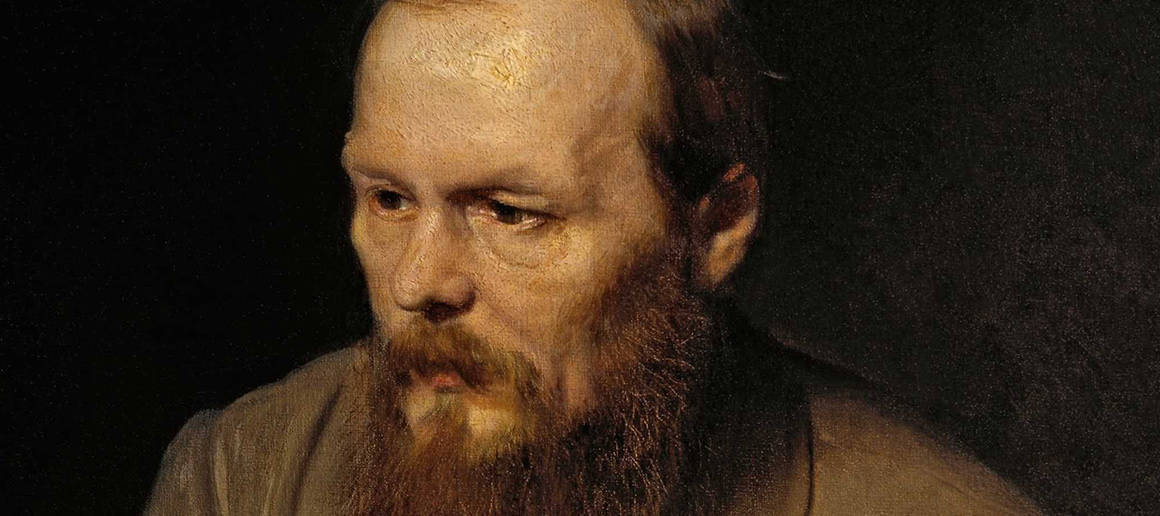Fyodor Mikhailovich Dostoevsky was a Russian novelist, short story writer, essayist, journalist and philosopher. Dostoevsky’s literary works explore human psychology in the troubled political, social, and spiritual atmospheres of 19th century Russia, and engage with a variety of realistic philosophical and religious themes. Take a look below for 30 more awesome and interesting facts about Fyodor Dostoevsky.
1. He began writing in his 20s, and his first novel, Poor Folk, was published in 1846 when he was 25 years old.
2. His most acclaimed works include Crime and Punishment, The Idiot, Demons, and The Brothers Karamazov.
3. Dostoevsky’s oeuvre consists of 11 novels, three novellas, 17 short stories and numerous other works.
4. Many literary critics rate him as one of the greatest psychologists in world literature.
5. His 1864 novella Notes from Underground is considered to be one of the first works of existentialist literature.
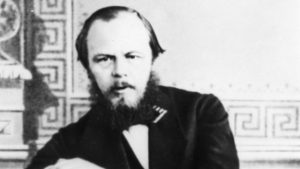
6. Born in Moscow in 1821, Dostoevsky was introduced to literature at an early age through fairy tales and legends, and through books by Russian and foreign authors.
7. His mother died in 1837 when he was 15 years old, and around the same time, he left school to enter the Nikolayev Military Engineering Institute.
8. After graduating, he worked as an engineer and briefly enjoyed a lavish lifestyle, translating books to earn extra money.
9. In the mid-1840s, he wrote his first novel, Poor Folk, which gained him entry into St. Petersburg’s literary circles.
10. Arrested in 1849 for belonging to a literary group that discussed banned books critical of Tsarist Russia, he was sentenced to death but the sentence was commuted at the last moment.
11. He spent four years in a Siberian prison camp, followed by six years of compulsory military service in exile.
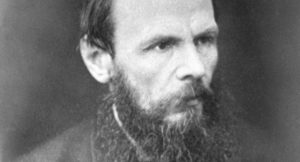
12. In the following years, Dostoevsky worked as a journalist, publishing and editing several magazines of his own and later A Writer’s Diary, which is a collection of his writings.
13. He began to travel around western Europe and developed a gambling addiction, which led to financial hardship.
14. For a time, he had to beg for money, but he eventually became one of the most widely read and highly regarded Russian writers.
15. Dostoevsky’s books have been translated into more than 170 languages.
16. Dostoevsky was influenced by a wide variety of philosophers and authors including Pushkin, Gogol, Augustine, Shakespeare, Dickens, Balzac, Lermontov, Hugo, Poe, Plato, Cervantes, Herzen, Kant, Belinsky, Hegel, Schiller, Solovyov, Bakunin, Sand, Hoffmann, and Mickiewicz.
17. His writings were widely read both within and beyond his native Russia and influenced an equally great number of later writers including Russians like Aleksandr Solzhenitsyn and Anton Chekhov.
18. Dostoevsky’s parents were part of a multi-ethnic and multi-denominational noble family, its branches including Russian Orthodox Christians, Roman Catholics and Eastern Catholics.
19. His family can trace its roots back to a Tatar, Aslan Chelebi-Murza, who in 1389 defected from the Golden Horse and joined forces with Dmitry Donskoy, the first prince of Muscovy to openly challenge the Mongol authority in the region.
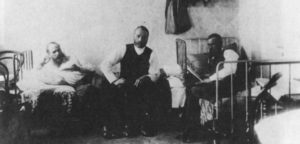
20. Dostoevsky’s immediate ancestors on his mother’s side were merchants, while the male line on his father’s side were priests.
21. His father, Mikhail, was expected to join the clergy but instead ran away from home and broke with the family permanently.
22. Dostoevsky was raised in the family home in the grounds of the Mariinsky Hospital for the Poor, which was in a lower class district on the edges of Moscow.
23. He sometimes encountered the patients, who were at the lower end of the Russian social scale, when playing in the hospital gardens.
24. From the age of three, he was read heroic sagas, fairy tales and legends by his nanny, Alena Frolovna, an especially influential figure in his upbringing and love for fictional stories.
25. When he was four years old, his mother used the Bible to teach him how to read and write.
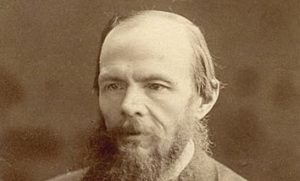
26. Dostoevsky’s parents introduced him to a wide range of literature, including Russian writers Karamzin, Pushkin and Derzhavin.
27. Although Dostoevsky had a delicate physical constitution, his parents described him as hot-headed, stubborn and cheeky.
28. In 1833, Dostoevsky’s father, who was profoundly religious, sent him to a French boarding school and then to the Chermak boarding school.
29. To pay the school fees, his father borrowed money and extended his private medical practice. However, Dostoevsky felt out of place among his aristocratic classmates at the Moscow school, and the experience was later reflected in some of his works, notably The Adolescent.
30. Dostoevsky was described as a pale, introverted dreamer and an over-excitable romantic.

